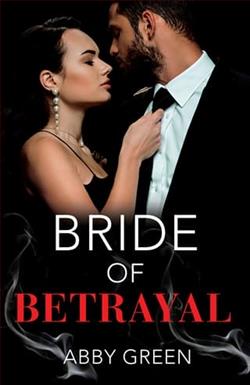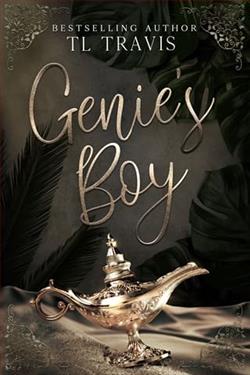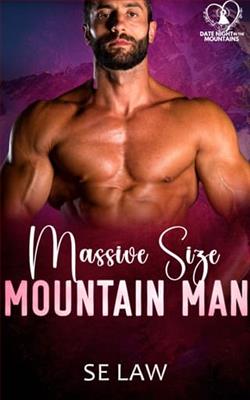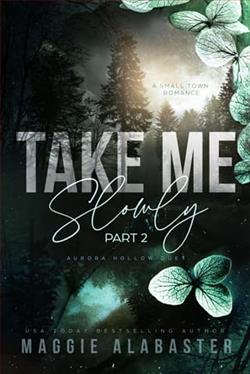Page 68 of The Robin on the Oak Throne
“Wisps arepowerful, Wren.” His eyes bored into her. He seemed eager to have this conversation. As if he’d been holding this back behind his teeth, waiting to tell Kierse when she was ready. “There are levels of magic. The first is the level that all magical users possess—our ability to ward, enhanced senses like being able to see the glow of magic or scent it, and recharge. That is how I could train you in magic before we knew you were Fae. You have your Fae abilities, which are more on the monster side than magic—enhanced beauty, sight, scent, smell, your pointed ears, typically an aversion to iron.” She nodded in agreement. “Then there are your wisp abilities. For all of your prowess in theft, your ability to absorb magic, and your slow motion, you weren’t displaying anything consistent with what I knew of their kind.”
“Like pixie light or persuasion?”
“Precisely.”
“Oisín filled me in on what my powers should be, but I could only ever get half of them to work. Which makes sense,” she added, “because Iamonly half wisp.”
“Truly, I thought you were more human than Fae. Youdidn’t have the ears or the enhanced senses. You only had a few abilities. When wisps have children with humans, the magic goes all sideways. Sometimes they only get one ability, sometimes none. Sometimes they have all the abilities, but they’re so slight they don’t even seem to manifest. Your magic didn’t conform to my expectations, and thus my expectation was that you weren’t a full-blooded wisp.”
“And now we know that my father was human.”
“I’m amazed you can do as much as you can, to be honest.”
She’d never considered that being half human could mean problems for her magic. But she also hadn’t ever had enough information about her parents to make that judgment.
His eyes went distant. “When I broke the spell on you, it was the sword that saw the truth of the spell around you. That is its purpose, after all, a truth teller. It told me to break it and reveal what was underneath. I did not once believe you to be the same child that sat in my library. She was long dead in my mind.”
As she looked up into his gleaming eyes, she realized that Graves was being frank with her. Earnest even. If that was a word that was possible to describe him.
He had sent her to Dublin for answers. She wanted to make her own decisions and check facts against all he had taught her. She would never regret that she had done so. She needed the ability to discern truth from falsehoods. Graves may have hidden her identity from her, but he had led her to all other answers. And perhaps…there might be a way to evenmoreanswers. The kind that only a warlock of knowledge could provide her.
Part of her job was knowing the worth of a thing. She had seen her father’s knife, and while it was clearly sentimental and of good use, it was not worth a name and a Druid amulet. Graves had given the amulet to her parents as a show of good faith, a way to help. He’d justified it as payment. Sometimes she forgot that he’d also helped the world by initiating the Monster Treaty. He’d put things into place to end the killing and set the world back onto the correct path.
Perhaps both were motivated by selfishness. After all, he was not all good or all bad, just as she was not one or the other. But he had helped a small child when she was in need, for less than the value of the aid. He knew her parents. He helped them. Andnowshe had a name.
She had thewhoof her story, if not thewhy.
“So…do you still have contact with Cillian Ryan?”
“Not since the war,” Graves said, putting space between them. “But we can find him.”
“Oh, it’swenow?”
He shrugged. “You have the scent. If I know you at all, you’re not going to let it go now.”
No, she wasn’t. She had to have her answers.
“Won’t you be busy with the cauldron?”
“Ah, the cauldron,” he said as he pecked at his phone. “I have my people on it.”
“I can help. That’s why you came here, right?”
Graves arched an eyebrow. “I’ll admit I wanted your assistance. It wasn’t the only reason.”
Part of it was because of her. She was beginning to see that he wasn’t completely bullshitting her.
“Do you expect me to walk away from a really greatscore any more than the clues from my memories?”
“Obviously not.”
“You need me, anyway. I’m an asset. And I don’t think for a second that you’re going to gobuythe cauldron at an auction.”
He tipped his chin up, denying nothing. He had the same look in his eye as when he’d entered negotiations with her parents. “And what is the price of your help, little thief?”
She could ask for anything. She knew what he’d offered for her to get the spear—ten million dollars and her freedom. She’d thought then that she would die for obtaining the thing. And instead, it now belonged to her.
This time they were on more even footing. He wanted her help on the cauldron, but shewantedto be in on it. So the negotiation should be for something that he also wanted to give her. The thing he’d already offered.















